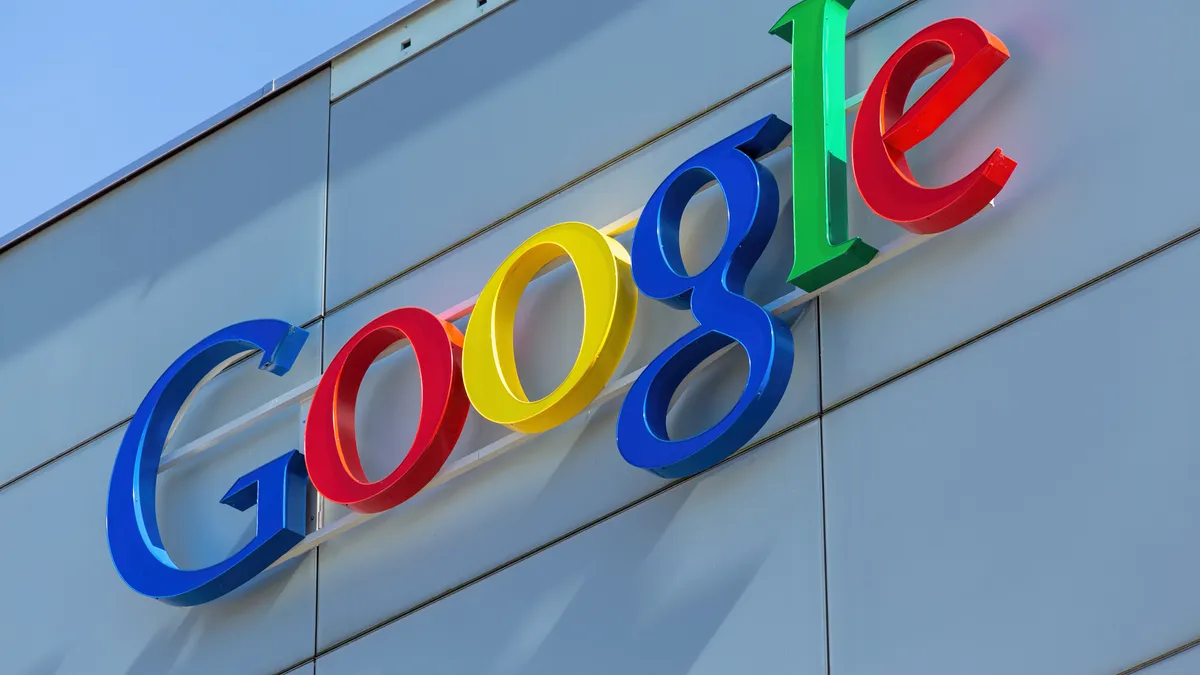Google employees worldwide walked out of their offices Thursday in one of the most high-profile examples of employee backlash over workplace sexual harassment in the post-#MeToo era.
Workers from Google offices in multiple international cities including Toronto, Zurich, Tokyo and Haifa, Israel, participated in walkout events, as did workers in the company's U.S. locations including one data center in Oklahoma and YouTube headquarters in San Bruno, CA.
We crunched the data (because that's what Googlers do). Nearly 17,000 employees from 40 global offices participated in #GoogleWalkout, and we haven't finished counting all the offices yet... pic.twitter.com/xCOnQakH0A
— Google Walkout For Real Change (@GoogleWalkout) November 2, 2018
Reports initially spread earlier this week of a planned walkout by a group that included 200 Google employees. The group said it had been organizing a "women's walkout" to demand more transparency and ethics from the tech giant after news the company paid Android creator Andy Rubin a $90 million exit package in 2014 following a sexual assault allegation, revealed in a report by The New York Times.
Thursday's events also followed an internal email from Google CEO Sundar Pichai and Vice President of People Operations Eileen Naughton, who wrote that the company had fired 48 people — including 13 senior managers — over sexual harassment allegations in the past two years. The email denied, however, that any managers were given "exit packages."
Protesting Google employees made five demands as part of Thursday's events, according to a walkout Twitter handle. But while Google may be the target of discontent at the moment, the protestors' list of demands touches upon several important legal and ethical debates that could affect any HR department.
Demand 1: An end to arbitration in cases of harassment and discrimination
The Supreme Court issued a key ruling in Epic Systems Corp. v. Lewis earlier this year that upheld employers' right to require workers to individually arbitrate disputes — a controversial decision and one that still requires employer caution, attorneys previously told HR Dive. Not long before this ruling came down, however, Uber announced that it would nix mandatory arbitration specifically for individual sexual harassment claims, partly in response to #MeToo concerns. Uber isn't alone; Microsoft made a similar move at the end of 2017, and more companies may begin to consider this move in light of public support for such policies.
Demand 2: A commitment to end pay and opportunity inequity
Employers are facing increasing pressure to ensure fair pay, especially in light of #MeToo — but also because of cost and manager feedback, a Willis Towers Watson poll revealed earlier this year. Nearly two-thirds of respondents to the poll said they've established formal processes to improve transparency regarding annual incentives, hiring decisions, starting salaries and base pay increases. But employers should seriously consider a pay audit, experts suggested at the National Employment Law Institute's 42nd annual Employment Law Update this year. Audits alone can sometimes help protect an employer if they ever do face equal pay claims, or allow them to address problems proactively.
As for opportunity inequity, employers should be especially wary of "the Onlys" in their workplace — women or people of color who are the only member of their group present during most work activities. Women "onlys" tend to have less interaction with senior leaders and thus be less likely to receive promotions, remain with their companies or join the leadership team — key aspects of opportunity inequity.
Demand 3: A publicly disclosed sexual harassment transparency report
While not all employers may need to go public with their efforts, many could still benefit from taking a second look at how they handle harassment, generally. Jeffrey S. Ettenger, partner at Schwartz Ettenger PLLC, outlined earlier this year the five things every employer should include in their sexual harassment prevention plan, including a solid policy, education and training, reporting procedures, proactive responses and a broad awareness of the issue. Some employers, like Facebook, have started widely sharing their policies, however, to jumpstart the conversation in their individual industries.
Demand 4: A clear process for reporting sexual misconduct safely and anonymously
If you don't have a process in place for submitting misconduct, get started on that now. But even if an employer does have a process in place, that may not protect it from liability, a recent 3rd U.S. Circuit Court of Appeals case shows. That case established that employers in the 3rd Circuit could still be liable if an employee did not use the harassment reporting process in place due to fear of reprisal, a big shift in that area.
Google employee Jennifer Brown carries a sign that reads "I Reported And He Got Promoted" while participating in today's #GoogleWalkout in San Francisco @sfchronicle pic.twitter.com/abboeu0RQJ
— Jessica Christian (@jachristian) November 1, 2018
Employers that protect "favored employees" from accusations may also see the hammer from the U.S. Equal Employment Opportunity Commission (EEOC), as we saw this week. As always, good processes are an employer's best defense, although some experts caution against policies that promise anonymity. Underscoring the importance of revisiting those processes, the EEOC recently reported a more than 50% year-over-year jump in the number sexual harassment suits filed in 2018.
Demand 5: Elevation of the Chief Diversity Officer to answer directly to the CEO
More employers have been hiring diversity and inclusion experts, according to research from Indeed, partly due to growing awareness of the division's importance. Symbolically, creating a diversity position that is not underneath another C-suite division could help signal a company's intent to take diversity and inclusion seriously — especially because many culture problems start with leadership, according to a recent PwC survey.
But as EverFi's new senior director of harassment prevention, Elizabeth Owens Bille, told HR Dive regarding harassment: "It's a critical time for employers to take a radically different approach, moving away from the compliance focus to a prevention focus." And that takes strong leadership dedicated to solving the problem.















